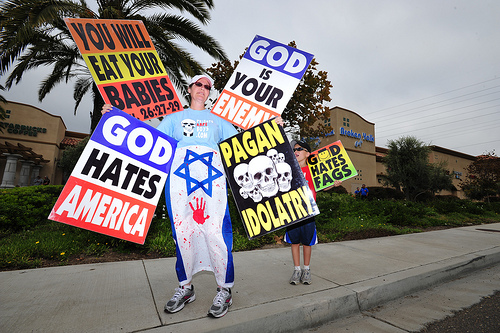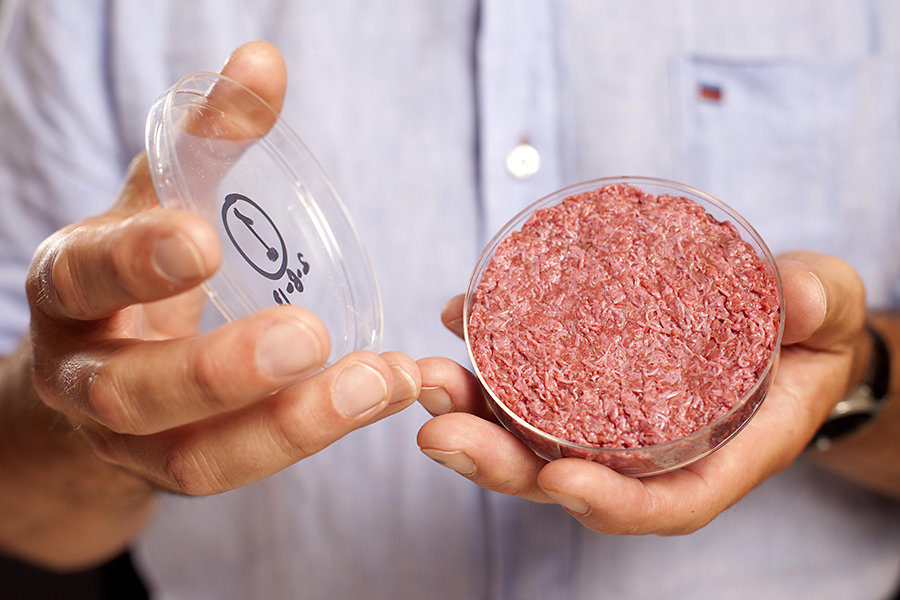AI: The Needs of the Many
I’ve been reading a bit about the history of the textile industry lately, because I’m a dufus who will read any book my friends place in front of me.
But it’s actually interesting stuff, and I was struck by an aspect of that history that is also present in other areas; that being the very real phenomenon where developments or advances for the common good nevertheless have negative residual effects.
For example, the invention of the cotton gin had a profound positive effect on the textile industry, and that effect trickled down to bolster other industries, from agricultural to medical. But the invention was directly responsible for a resurgeance in the slave trade in the southern United States that by many accounts, was dying out in the late 18th and early 19th centuries.
Also, the massive production output of textile plants in European cities clothed and comforted millions, but children in cities like Manchester, England became all but slaves working in deplorable conditions.
So today’s question(s):
Does skeptical activism, obviously geared for the common good, nevertheless hurt some people? Who? How? What negative effects in the modern world that come about this way concern you most? Do you notice any negative residual effects in the “good” that you do personally?Â
Interesting tidbit: Since cotton wasn’t indigenous to Europe, some early Europeans were quite confused about the commodity. There was actually a pervasive belief that a plant produced sheep as its fruit, and that’s where cotton came from. Alexander the Great is said to have referred to cotton as “tree wool”.Â
The Afternoon Inquisition (or AI) is a question posed to you, the Skepchick community. Look for it to appear Tuesdays, Thursdays, Saturdays, and Sundays at 3pm ET.





Negative side effect: I may have inadvertently caused a few cases of blindness in friends and loved ones, due to excessive eye rolling. It goes like this:
Someone: *nonsense, conjecture, illogic*
Me: “…yeah, but” or “aaaaaactually”
Friend/Loved One, listening in: *rolls eyes*
I think Oprah’s been hurting pretty bad ever since the skeptical movement gained momentum. I mean, she’s #400 on Forbe’s richest people on the planet list. Not even in the top 100- take that, Oprah!
The most noticeable negative personal effect of skepticism is the strain it puts on the relationship with my parents. They feel genuinely hurt that I’m just not that into their god.
Overall, I think the danger to the culture may be the destruction of religion. I know that people are going to point to all of the terrible things that have happened because of religion, but I think that’s mostly the extremists. I think there are people who feel lost and without a purpose if they lose their relationship with god. I don’t know exactly how we can fill that void.
Yuri Geller, Sylvia Brown and homeopaths are still working and making money so clearly not enough has been done. Great question Sam and after wracking my brain I can’t come up with anything that fits the analogy except that some quack may be shut down and his/her kids may be forced to attend a community college instead of Big Fancy U..
honestly, it’s probably hurt me more than anyone else. I often find myself very depressed about the state of the world and the lack of acceptance of rationality. I feel out of place and often spend as much time questioning my own perceptions of reality as much as I question dubious claims. People don’t care about facts, so being a skeptical advocate has mostly just gotten me a lot of grief. It’s rare that anyone changes their mind, and I usually just ruin a good night of drinking by arguing about reiki. I’m trying to lay off a bit, but it’s tough.
There will always be unforeseen negative consequences, but the bigger question is if what we can lose by not taking a stand is greater than what we can gain by taking a stand?
Warning: Side effects of following the science may include decreased unwanted pregnancy, a better understanding of the way the world works, healthier children, decreased distrust of Big Industry, and resources spent on more effective modalities.
Um…you’d have to have some serious negative side effects to counter these.
There’s a short story by Fred Saberhagen called “Mr Jester”. It takes place in a society where everything must have a practical purpose. Art, humor and frivolity are criminal acts.
I could see skeptical activism (or more likely a personality cult thinly disguised as skeptical activism), taken to a fanatical extreme, creating such a society. In practice, though, I doubt skeptical activism will ever have a wide enough appeal to have this sort of effect. There will always be more than enough irrationality to balance it out.
If I recall correctly, protagonist of “Mr Jester” saves the day by reprogramming a murderous robot to perform slapstick.
@infinitemonkey:
No doubt about that.
But it’s not really about countering, is it? It’s more about recognizing any resulting ills. Certainly there will be some that we don’t see coming. There always are. But if we recognize that our actions do have a negative impact, can’t we then take steps to minimize or lessen the severity of the impact?
By the way, this is not my personal Polly Anna-ish view of the subject. Just discussion points really.
@James Fox:
I love Big Fancy U’s battle cry though: “Let’s go F.U.!”
@infinitemonkey: I, for one can see some major negative side effects of decreased distrust of Big Industry…and, in some worst case scenarios, of healthier children, but I’m not just a skeptic, I also have a strong pessimist nature.
@Sam Ogden: It’s not like me to miss that. Bob Jones University is still my favorite and winner of the best deserved acronym.
@James Fox:
Well, it’s early out there. What time is it on the left side of the country? Like 6am or something?
@Sam Ogden:
Isn’t that the logic behind vaccine compensation funds? The state makes vaccination mandatory because the benefits outweigh the negatives by about a billion-to-one. BUT, they acknowledge that a handful of children will have negative reactions to the vaccines, so they compensate the parents.
-S
@Sean:
Yes. That’s a great example. Thanks for bringing that up.
“Interesting tidbit: Since cotton wasn’t indigenous to Europe, some early Europeans were quite confused about the commodity. There was actually a pervasive belief that a plant produced sheep as its fruit, and that’s where cotton came from. Alexander the Great is said to have referred to cotton as ‘tree wool’.”
Another interesting tidbit: the German word for cotton is “Baumwolle,” which literally means “tree wool”.
Actions with broad effects almost always hurt someone, even if they’re a net positive to almost everyone. As such, I’m glad to see you address this topic Sam.
I’ll leave the peddles of woo to one side. Sure, they’ll lose out but they have it coming. It’s the innocents who make the strongest case against us.
The terminal patients who lose hope due to their “miracle cure” being debunked. The nice old ladies who go to church every Sunday, but lose some of their sense of community as fewer people turn up to church as the years roll on. The dreamers of the world who feel some of the magic bleed out of their world.
But is it worth it? Damn straight. A community is more than a building with a cross (or a minaret) on it, and hope based on lies is nothing more than a cruel joke.
There is wonder in fiction, but wonder in reality too: to hold a piece of gold in your hand and realise a star died to create it, to know that the distant lights of stars are really massive nuclear furnaces that have burned for millennia. Rainbows are beautiful even if you know they’re the product of diffracted photons, and not leprechauns.
The problem I have here is that you are comparing apples to oranges, technologies to social movements.
As a social movement, skepticism’s greatest potential downside is in the confusion of skepticism with rationalism.
Rationalism has a huge downside, like all wholly unrealistic views of human nature, the “spockish” side of skepticism holds the potential for a totalitarian state, where basic things like community bonding, market decisions, or mating are bent to some kind of central control. This would be a bad idea.
Skepticism, on the other hand, seems immune to the possibility of strong central control, simply because we can pretty easily verify that central control is a lousy way to structure an economy or a society.
However, skepticism as a social movement seems prone to fragmentation. Many skeptics don’t seem to be particularly fond of building communities. However, I don’t know that this is endemic to the philosophy itself. It seems more likely that this is just a product of the times, misfits are more likely to be skeptics, and misanthropes are more likely to be misfits. If skepticism spreads, the community builders and joiners will start to dominate the movement. This is already happening, of course, but I expect it to grow as the movement grows.
It is possible that with a loss of surety, society would lose the ability to mobilize. Would a society of skeptics be able to defend itself against a society of fanatics? Would a skeptical society be able to field a standing army of volunteers? Would it need to? I don’t know the answers to these questions, but if a skeptical country needed a military in a hurry and didn’t have one, that could suck.
I’m not worried about the roles of churches in community and charity, because these are very basic societal functions that people will tend to engage in when free to do so. But I’m not so confident about the military role of religion.
@sethmanapio:
Although not a perfect analogy, the history of the anarchist armies of Nestor Makhno and Buenaventura Durruti are illustrative. These were both fully volunteer organizations who were able to fight effectively and generally had a higher morale than other armies since they could leave at any point. So, I think a skeptical army could certainly exist.
On the other question, Makhno’s army was crushed by the more fanatical Bolsheviks when the Bolsheviks consolidated power and the anarchists were no longer useful. Durruti was most likely killed by Stalinists or right-wing reformists during the defense of Madrid, since he was a potential obstacle to gaining power.
Assuming my analogy is at least usable, defense against a society of fanatics is far less sure.
Ignorance (in some instances) is bliss, but you can’t make an omelet without breaking a few eggs.
@reparker: The Norwegian word for cotton “bomull” is derived from the German, and I know German, and can see it clearly now, baum-wolle = tree-wool, but I never thought of that before. Thank you.
I think when you broaden the question to be more about the effects of critical thinking, you can’t argue against it. My goal as a skeptic is to further the education of critical thinking, and I sincerely believe that it’s the only real hope we have. Societies get better the more rational and scientific they become.
But it’s a difficult road. People do not want to let go of their superstitions. I am in the middle of a family conflict over alt med that only promises to get worse. I’m perceived as negative, and only interested in being “right” rather than others’ well-being. It’s possible that this is partly my fault, but I try very hard to guard against being pedantic.
No matter what, I keep focused on the fact that I am acting out of true compassion and the positive belief in a rational world governed by natural laws, not magic. It’s the greatest change in my life – I was a woo-believer as a younger man – and I am convinced of its benefits if more widely adopted.
Sorry to ramble. It’s an emotional issue, and one I think about a whole lot!
An interesting parallel in topics, Mr. Sam-wise Ogden. The textile industry and skepticism. If one takes a look at the history of hemp one sees a huge lack of skeptical thinking around it. The continued prohibition of industrial hemp, despite the massive evidence showing its superiority over just cotton alone, shows a deep lack of skeptical thinking.
There are many areas where the lack of critical thinking in others frustrates me, and there are even some where things get understandably gray because it may require some deeper knowledge of complicated ideas. But the topic of industrial hemp really throws me into a fissy-hit. I’m already getting shaky just thinking about it even while feeling pretty confident that no one one this site has a problem with ending Prohibition.
This question leads me to think about the Ricky Gervais film “The Invention of Lying”, where in a parallel universe (we are lead to believe) no one can tell a lie. When Ricky’s character invents the first lie the effects are actually VERY positive, both for him and those around him. But, the negative consequences begin to pile up as he invents bigger and “better” lies to make others feel good, particularly one about a “man in the sky” who makes the rules, etc. (I’ll let you see what else happens as a result).
When applied to skeptical thinking and activism, I’m with @anatotitan: I agree that the task of education of our youth in the ways of critical thinking will, more likely than not, lead to positive outcomes, but the spectre of “scientism” and/or a reliance on pure rationalism could be dangerous.
@mikerattlesnake: I know the feeling. I sometimes get a feeling that I can only describe as a sort of “existential despair.”
@infinitemonkey: Sometimes our choices are between the lesser of two evils, not the good and the evil.
@Garrison22: Would anyone want to live in a world where no one could/would lie? Would any woman want her SO to say “Yes” to the question, “Does this make my butt look fat?” ;-)
@anatotitian: I suppose if your family defines being “right” as keeping their illusions and letting something harm them, you have no hope of changing their minds for now.
Not sure how to put this into words, but …
I worry sometimes that when anyone – skeptics or religious types – get very emotional about having found “the truth” they tend to become forceful about sharing their newfound truth. And fanaticism in a skeptic is just as unpleasant as fanaticism in a religioso.
As Skeptics look around the world, they trust the input of their physical senses, they trust the results that can be replicated, they trust what they experience as reality.
As Religiosos look around the world, they trust their emotions, they trust what they feel, and they trust what THEY experience as reality internally, even when it conflicts with what we see as the external reality.
I’m personally not interested in making converts because I know that I had to come to my own beliefs in my own time. And when someone tries to convert me to their belief system, I know that I reflexively cling tighter to my own beliefs – right or wrong.
So, the downside I see to Skeptical Activism is when it parallels Religious Fundamentalism in ferocity.
Not sure I got to the underlying thought – but hopefully somewhere close?